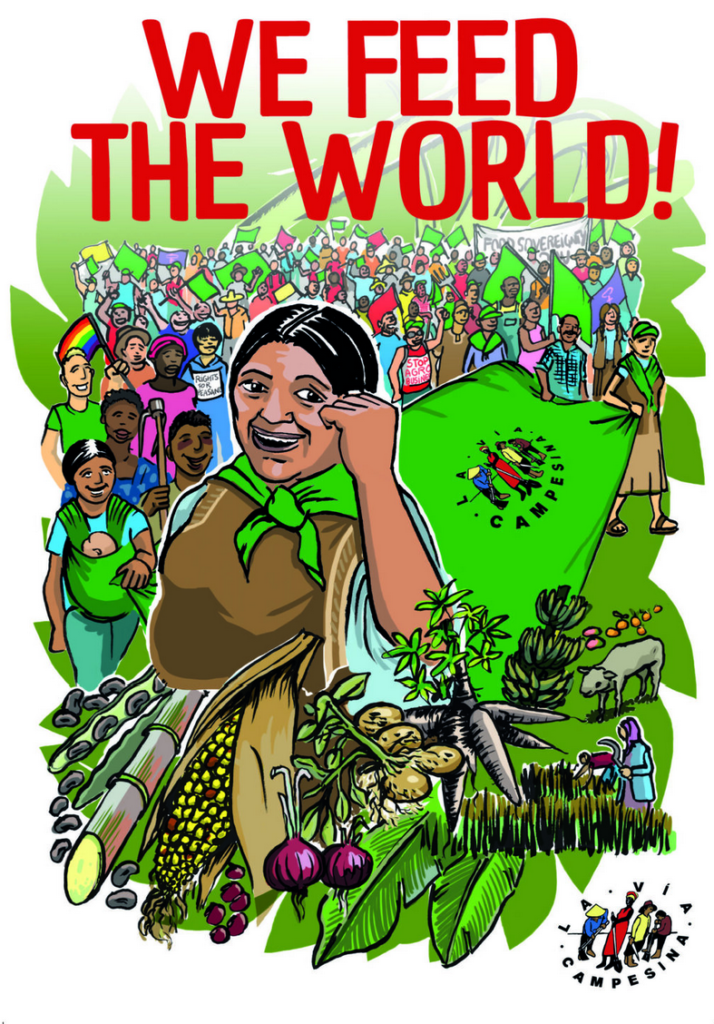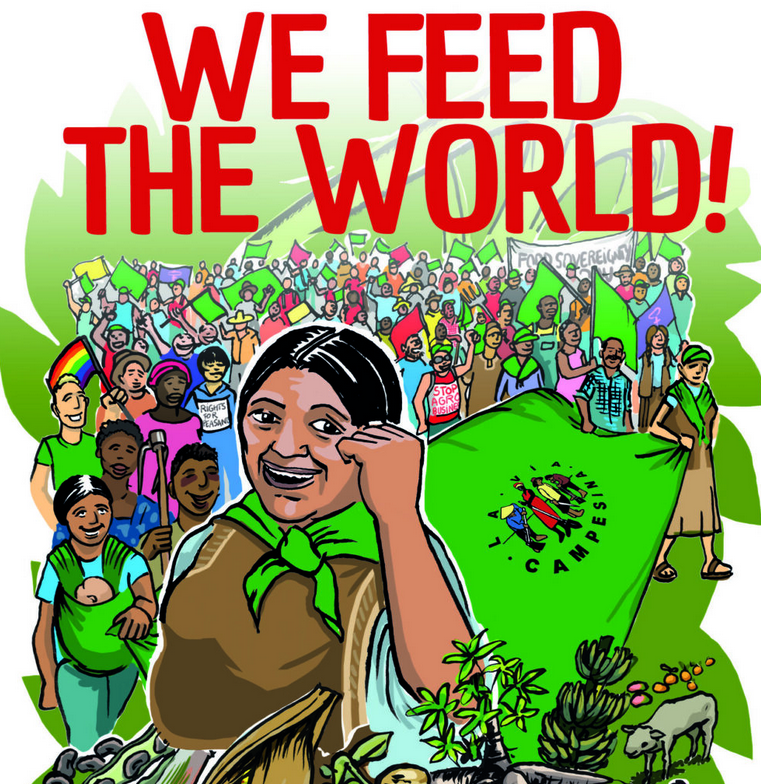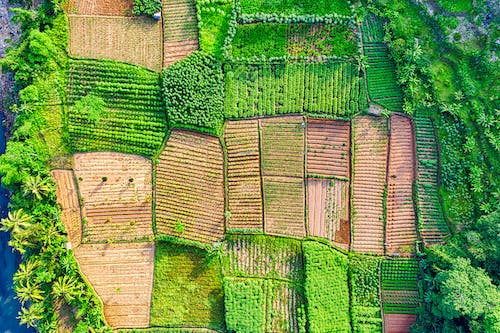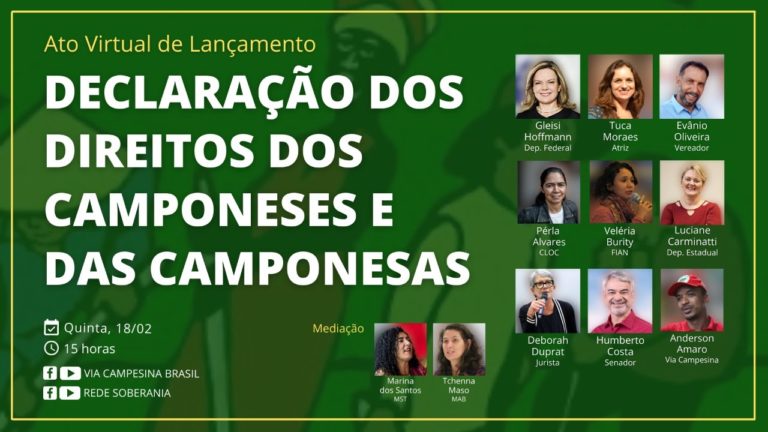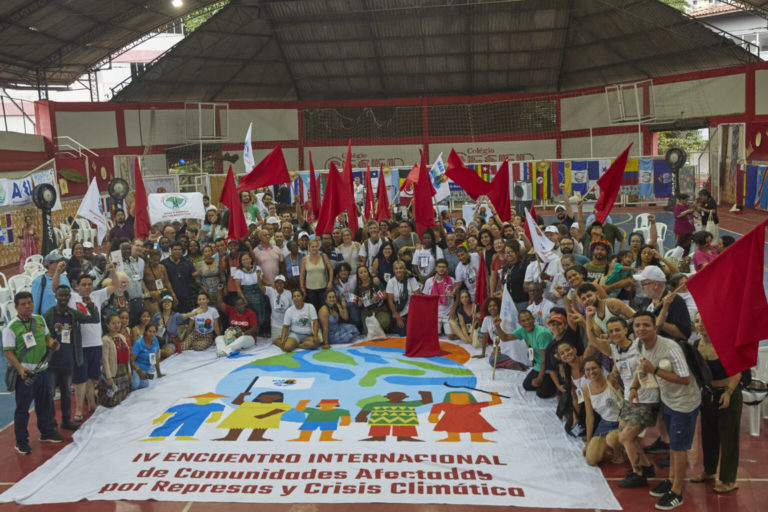‘We Feed the World’ | An illustrated book in defense of peasant agriculture
Transnational Agribusiness has long violated the rights of peasants and other people working in rural areas with impunity. Backed by capital accumulated by exploiting agricultural producers, these Corporations work in connivance with local authorities, governments and sometimes even mercenaries. They forcefully evict people from their lands, push through pro-corporate reforms at the cost of public welfare and take ownership and control of natural resources and peasant heritage such as seeds.
All these violations, which often go unpunished in most countries, have direct and devastating impacts on the lives and livelihoods of rural and urban communities. Communities have fought back. Sustained and organized resistance by peasants, fishers, migrants and indigenous communities have, in many instances, exposed these Corporations and their crimes. Yet, the lack of an international and legally binding treaty to check violations by TNCs has meant that these partial victories scored by communities often go unnoticed. At the same time, corporate-led human-rights abuses continue to take place worldwide.
Corporations have also been called out and penalized in many countries. But instead of mending their ways, they are attempting to “greenwash their crimes” by taking seats at these international governance spaces meant to regulate them, often with the tacit approval from the highest officials at the United Nations and its affiliated organs.
Social movements and civil society organizations are pushing back against the growing influence of corporations in the international and national food and nutrition policy arena. The stiff resistance put up by civil society against the UN Food Systems Summit in 2021 is among the recent examples of this pushback. Despite such clear and united opposition from the global civil society, corporate grip continues to expand in international, regional, and national policy places. This increasing influence of corporations and their “sustainability-talk” at the international fora hides the reality on the ground: rising global food prices and farm inputs aggravated by the speculation on commodities, deterioration of soil health, destruction of biodiversity, criminal levels of greenhouse gas emissions that emanate out of industrial food chain and blatant attempts to privatize and patent native seeds that are the heritage of the people! Today, transnational corporations are behind the main threats and violence experienced by peasants and rural workers all along the food production chain.
All is not doom, though.
This unrelenting push for the Corporatization of our food systems has faced stiff resistance everywhere from peasants, waged workers and indigenous peoples. La Via Campesina is one expression of this resistance. For nearly three decades, the global peasant movement has advocated a counter-vision on how to feed the world. In this vision built on the principles of food sovereignty, people and local communities are the principal actors in the fight against poverty and hunger. It demands autonomy and objective conditions to use local resources and calls for agrarian reform. It defends the rights of peasant communities to use, save, and exchange seeds. It stands for the rights of people to eat healthy, nutritious food.
It encourages agroecological production cycles, respecting climatic and cultural diversities in every community. It defends the rights of peasants, indigenous peoples, waged workers and migrants at all levels of the global food system.
In this illustrated book, “We Feed the World“La Via Campesina with artist and activist Annelise Verdier collaborates to demonstrate the contrast between agribusiness-led and peasant-led visions of producing, distributing and consuming food. Social justice, gender justice and solidarity economies are essential pre-conditions for realizing food sovereignty. La Via Campesina calls for an international trade order based on cooperation and human rights instead of competition and coercion.
It captures the attempt to corporatize agriculture and food production and expresses the brave resistance of peasants, workers and indigenous peoples. It advocates for a food system with the interest of the people and the planet at its very core. It denounces the industrial food system, exploiting cheap labour and encouraging cutthroat competition for profits.
La Via Campesina reiterates that a legally binding global treaty coherent with the Articles of the UN Declaration on the Rights of Peasants and Other People Working in Rural Areas is urgently necessary. These instruments, alongside other International Conventions and treaties, will apply brakes on corporate control and its undue influence on the food systems.
